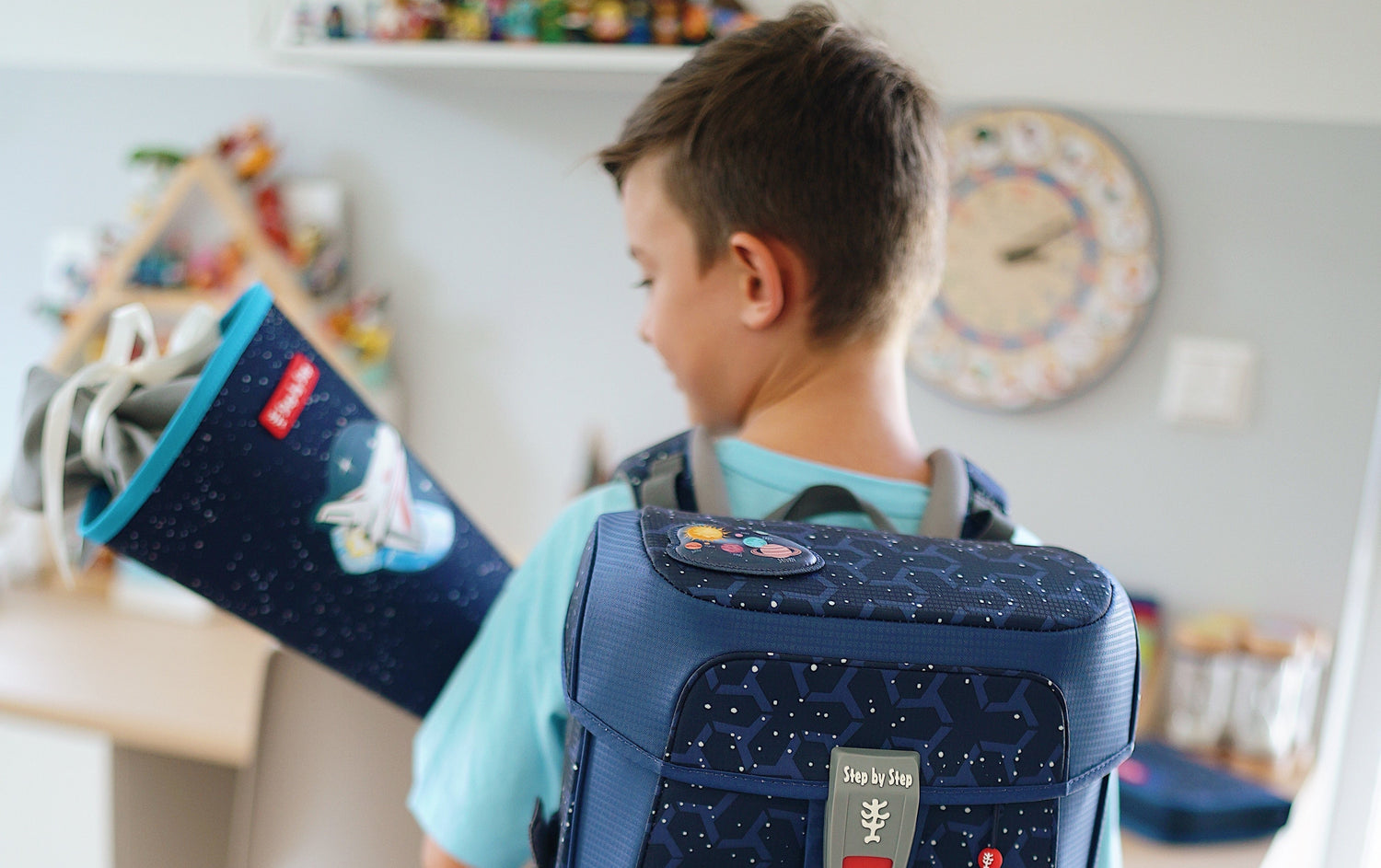For around 700,000 boys and girls, a new phase of life begins after the summer holidays: they're finally starting school! Learn what that means and how you can support your children in this important step toward new independence in this article.
What does compulsory schooling actually mean?
All children living in Germany must attend school. A positive way of putting it this way: Every child has the right to attend school. Constitutionally, the right to education is derived from the principle of equality (Article 3 of the Basic Law) and the principle of free personal development (Article 2 of the Basic Law). Compulsory schooling in Germany lasts, depending on the federal state, between nine years (Bavaria) and ten years (Berlin). If a child repeats a grade, the repeated year counts. To enable parents to fulfill their child's compulsory schooling, the state provides the necessary facilities. Parents must register their child for school in a timely manner. Failure to register may result in criminal prosecution. Furthermore, parents have a duty of care to ensure punctual school attendance. They must provide their children with the necessary school materials and are responsible for reporting sickness in the event of any absences.
When does my child start school?
It is well known that education in Germany is a matter for the individual states. But very few people realize that this not only affects different curricula, different summer vacation times and examination formats, but also the starting age of first-graders. Until 1997, the rule was that all children who turned six by June 30th started school the same year after the summer vacation. At the end of the 1990s, the Standing Conference of the Ministers of Education and Cultural Affairs of the Länder in the Federal Republic of Germany decided to extend the current cut-off date regulations. Since then, the 16 federal states have been able to decide for themselves when their preferred cut-off date is. The majority has decided that all children who turn six by June 30th of the current year are required to start school in the same year. Thuringia, for example, sets August 1st for this, while Bavaria, North Rhine-Westphalia and Lower Saxony set September 30th.
Earlier enrollment is possible
Some children seem to be further along in their development than others. If you feel that your child might not be being challenged enough in daycare and you want them to start school earlier, there are a few things to consider. First of all, you should talk to the relevant teachers about your impressions. If their opinions differ, you should make sure that your child has already completed the U9 check-up with their family doctor or pediatrician. This usually takes place between the 69th and 64th month of their life. The check-up clarifies whether your child has developed the physical, mental, social, emotional, and language skills in the first five years of their life to cope smoothly at school. But be careful: the U9 check-up does not replace the school entrance examination. The latter is carried out to identify any special needs at an early stage. Therefore, both examinations must ultimately be carried out. In addition to a further discussion with the future school administration, it is also necessary to apply for early enrollment with the responsible school authority. Please note that early school enrollment should be carefully considered, as it can have many advantages as well as some disadvantages.
School enrollment in numbers
Studies by the Federal Statistical Office (Destatis) have shown that the number of school enrollments has steadily increased in recent years. Due to demographic developments and the associated higher birth rates since 2014, for example, in 2021, as many children were enrolled in school as last in 2007. On average, there were around 3.0% more children of school-relevant age between 5 and 7 years nationwide in 2020 than in previous years. In 2021, Bremen showed the highest increase in school enrollment candidates at 7.0%, while Berlin had the smallest increase at 0.6%. Only Saxony recorded no change, and Thuringia was the only federal state to show a declining number of school beginners (0.8%). The institution that children attend most frequently in their first year of school is primary school. In 2021, 93.6% of school-age children were enrolled here. A further 3.0% attended a special needs school, 2.4% attended an integrated comprehensive school, and 1.0% attended an independent Waldorf school. Compared to the previous year, there was a 3.4% increase in enrollment at Waldorf schools and an almost identical percentage increase in primary schools (3.1%). Only special needs schools recorded a slight decrease (-0.9%).
The perfect school cone and its contents
But the most important thing of all – at least probably from the child’s point of view – is the school cone.
How about the colorful school cones from Step by Step, for example? From unicorns to dinosaurs, there's something for every child. The school cone can even be chosen to match a school bag. Even without a school bag, the cones are a real eye-catcher in the matching design, and thanks to their light weight, they're perfect for small children's hands, even when filled. Which school cone do you like best?
Here you can find our starter bundles!
Our top 10 school cone gifts
- Friendship book
- wristwatch
- bookmark
- keychain
- Favorite snacks
- Yo-yos or bouncy balls
- coloring books
- lucky charm
- Stickers and decals
- EDURINO starter set or the latest EDURINO figure
With these tips you will be well prepared for the big day!
We wish you much success and lots of fun!
- Your EDURINO team!








